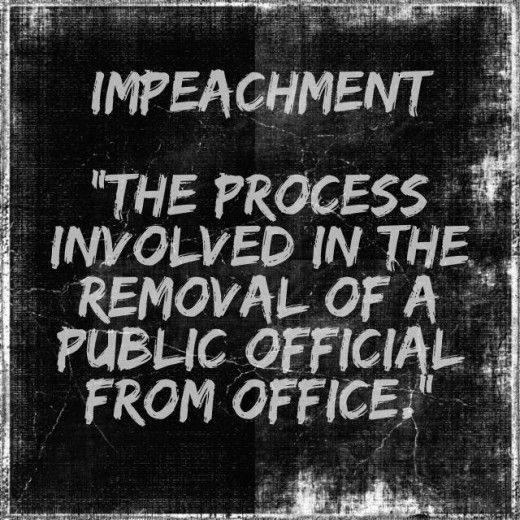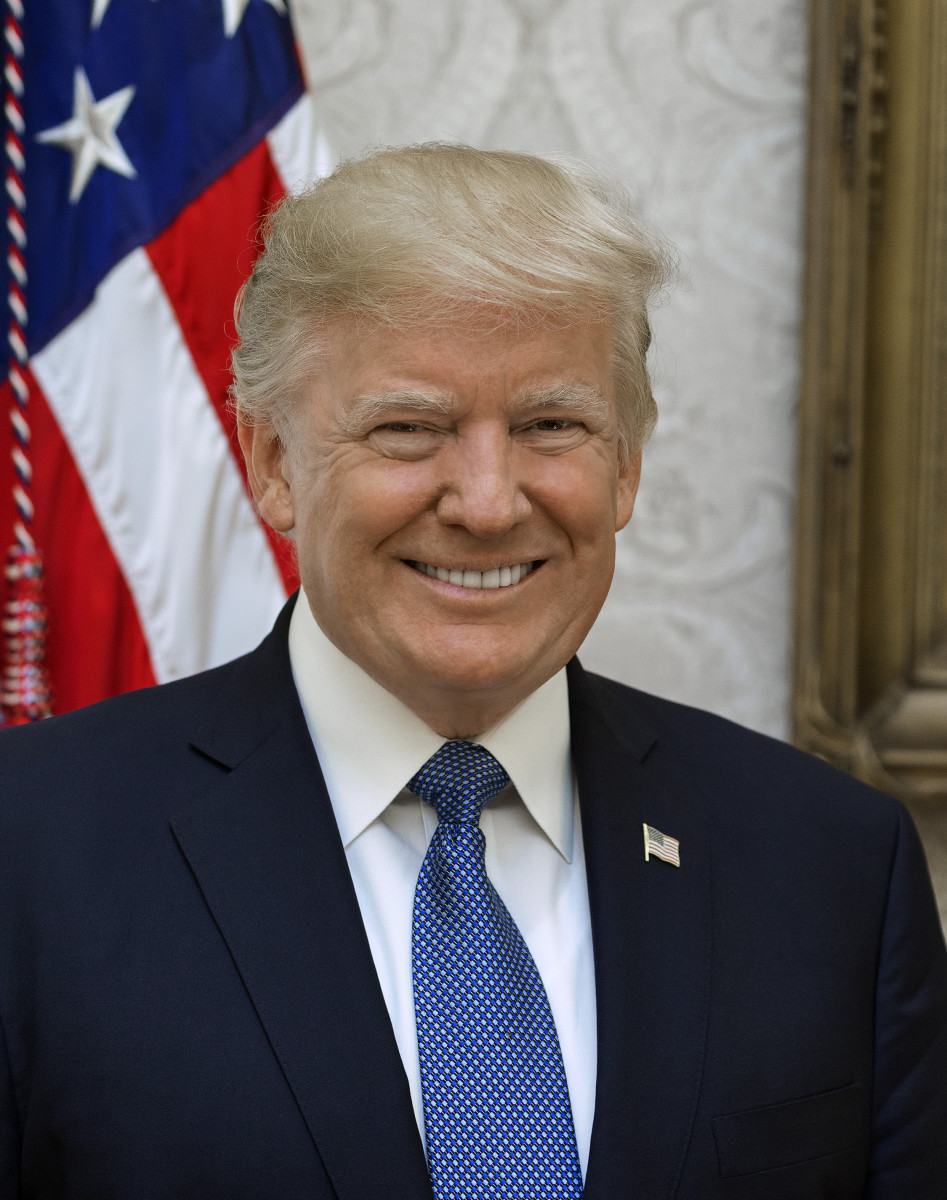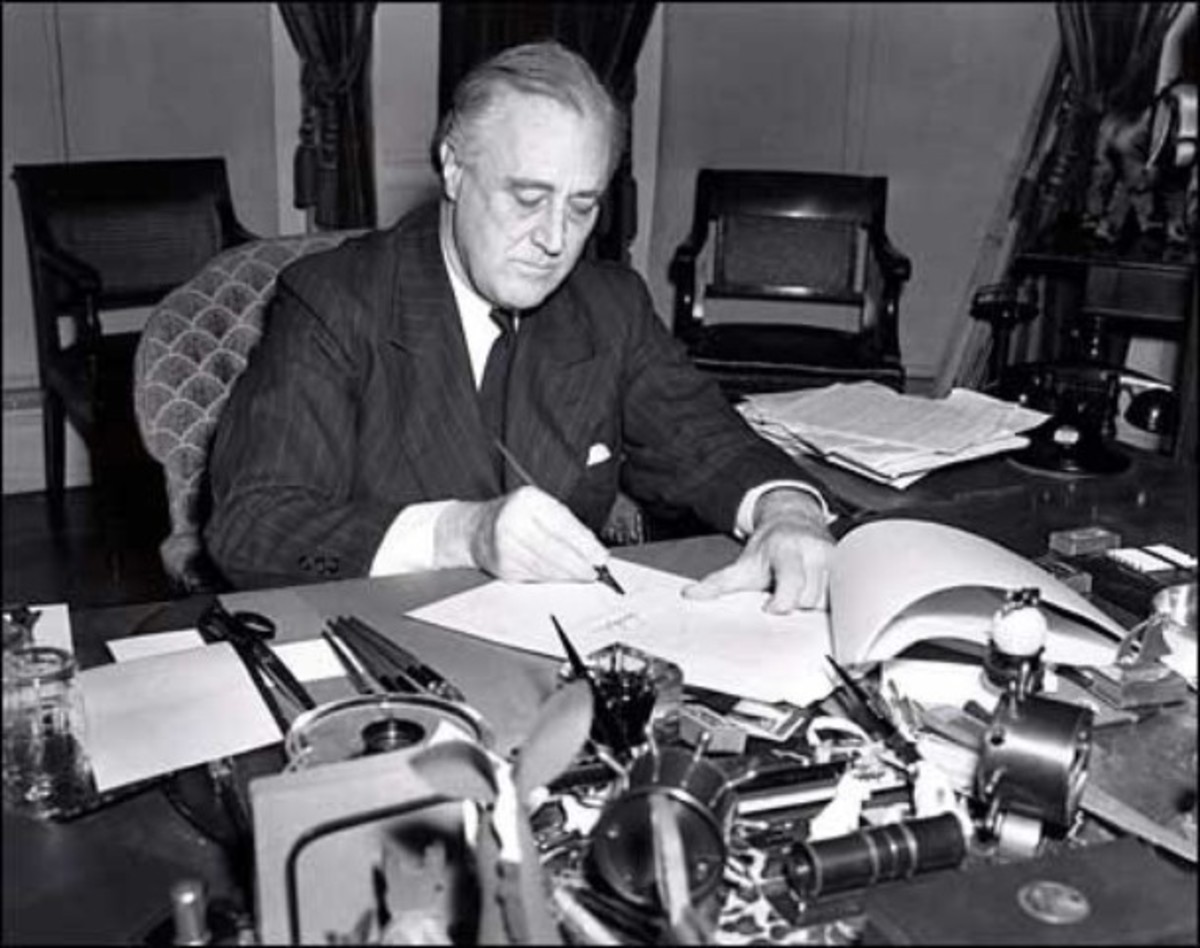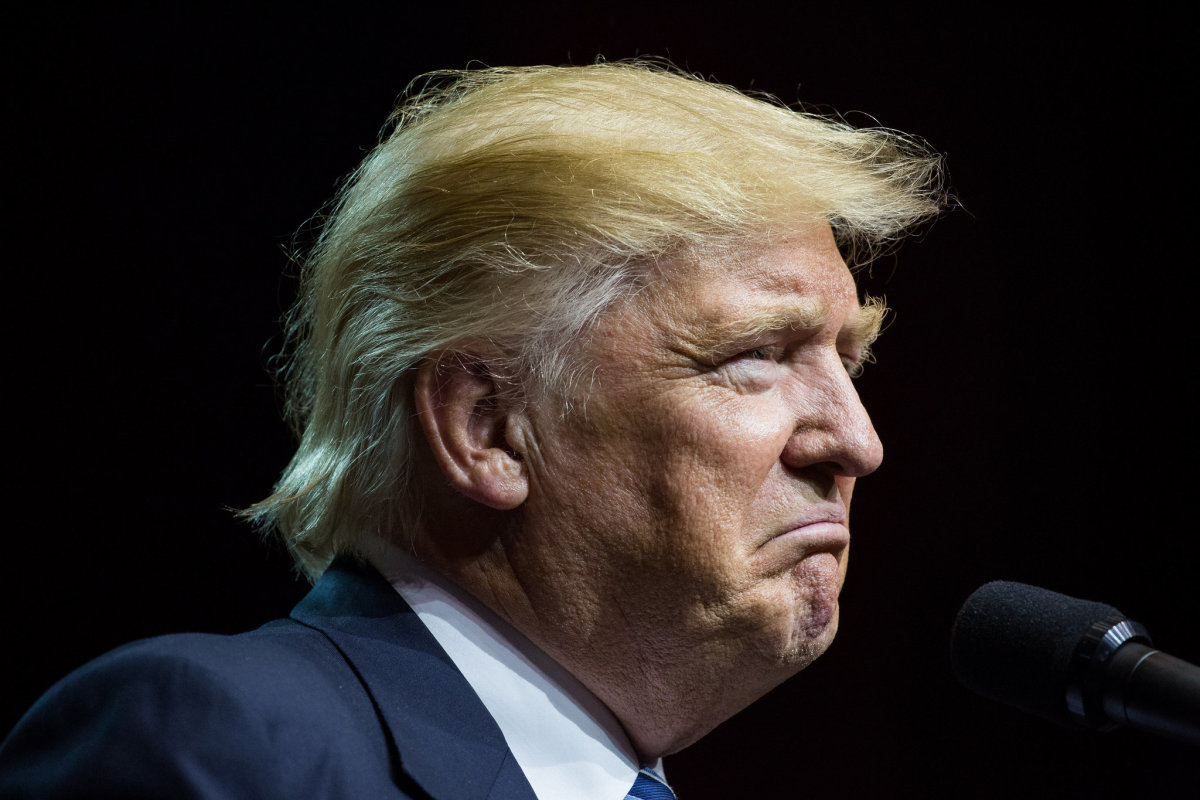Impeachment: What It Is and What It Is Not

Impeachment: Definition
First of all, the term "impeachment" refers to "the process in the removal of a public official from office." The keyword in the definition of impeachment is that it is a process. There are many steps over a long period of time that may actually result in impeachment.
The public must understand that Impeachment does not remove the official from office even if the inquiry and other steps prove the public official is guilty of impeachable crimes.
In criminal law, an Impeachment like an indictment. In other words, it is just a statement of charges against the official. If a public official is impeached, it doesn't mean a person has to be removed from the office he or she was in when the offense occurred. Impeachment is just the springboard which starts a much longer process.
The Constitution of the United States allows sitting presidents to be removed from their office if the members of Congress vote that the president has committed “treason, bribery, or other high crimes and misdemeanors.”

The Impeachment Process
There are many layers in the impeachment process that involves the House and the Senate. On September 24, 2019, Speaker of the House Nancy Pelosi announced that there would be a formal impeachment inquiry into the allegation that President Donald Trump had a conversation with the Ukrainian president about investigating Joe Biden and his family. That's because Biden is one of Trump's 2020 rivals for the office of President of the United States.
The Democrats currently have 235 members in the House while the Republicans have only 198. The New York Times reported that the House only needs a majority of the 203 members to impeach. So far, 203 members favor impeachment proceedings, 88 are opposed or undecided, and 144 have not indicated what they will do. It is likely that the Democrats will win the vote for impeachment.
The House impeaches, but the Senate is in charge of the trial.
If the House votes to impeach, the Senate will begin an official trial to remove the president from office. There are 53 Republican Senators. In order to pass through the Senate, there needs to be a two-thirds vote of at least 67. There are currently 53 Republican Senators. At least 14 Republican Senator would have to vote against their own party. Most people think that is highly unlikely.
President Trump would then have to choose to resign like Nixon in 1974 did or stand trial in the Senate like Bill Clinton did in 1999. Remember, impeachment rarely results in removal from office. It just becomes a dark mark on the president’s permanent record.
Speaker Pelosi didn't indicate a timeline for the process, but she said it would be done expeditiously. The last Senate trial was for Bill Clinton that took 127 days. Congress has less than 30 working days before the session ends in December. Unless Congress acts very quickly, the trial will not happen until next year, if there is one.
Impeachments in US History
Two United States Presidents have been impeached, Andrew Johnson was impeached on February 24, 1868. The 17th President of the United States was indicted for 11 crimes.
Bill Clinton was impeached in 1999. The 42nd President of the United States was indicted for two articles of impeachment. He was charged for lying under oath and obstruction of justice. Those charges stemmed from a sexual harassment lawsuit filed against him by Paula Jones. Most people still think his impeachable crime was because of his alleged sexual activity with Monica Lewinsky, but that was not included in his crimes for impeachment.
President Johnson and Clinton were impeached by the House, but neither was convicted by the Senate. That means they were not removed from office.
There were efforts to impeach Richard Nixon, but the 37th President of the United States resigned before proceedings started. His high crimes were primarily related to the Watergate scandal. Nixon resigned from office on August 9, 1974. Most people still believe that had Nixon not resigned on his own, he would have been removed from office.
Reactions to Trump's Impeachment Inquiry
President Donald Trump has described this process as a "witch hunt," and "a hoax." He also calls the impeachment inquiry "presidential harassment." He denies having done anything wrong.
The news appeared on the front pages of newspapers around the world a day after the announcement was made about the impeachment inquiry. Major newspapers in the United States carried Speaker Pelosi's photo on its front pages. European and Latin newspapers included the impeachment of Richard Nixon and Bill Clinton in their articles.
A Germany newspaper argued that the Democrats risk everything by launching the proceedings. An Italy newspaper warns that the impeachment proceedings will overshadow the 2020 Presidential election.
Even though the impeachment inquiry involves Ukraine, that country's newspaper did not focus on the impeachment inquiry. Instead, it carried the news about Trump meeting with President Volodymyr Zelensky at the UN General Assembly in New York on Wednesday. the day after Pelosi's announcement.








